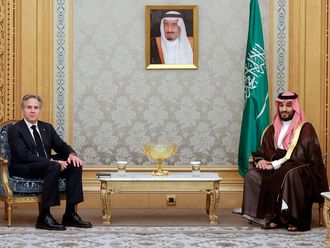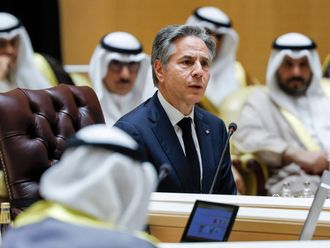Dubai: Medical charity Medecins Sans Frontieres (MSF) said on Sunday it was cancelling a conference in Bahrain after the government failed to provide guarantees it would allow open debate over medical ethics.
The US-allied Gulf Arab state has faced international criticism over court verdicts against doctors and nurses who treated Bahrainis injured in a 2011 uprising led by Shiite-led opposition demanding reforms and complaining of alleged discrimination.
Medecins Sans Frontieres said its decision came after a year of talks with the Bahraini government over guarantees for freedom of discussion at the conference, which would have dealt with ethics in times of political instability.
“We are forced to conclude that today in Bahrain it is not possible for medical professionals and international impartial participants to have a conversation about medical ethics,” Bart Janssens, MSF director of operations, said in a statement.
Bahrain’s Information Minister Samira Rajab said she had signed written approvals for the group to hold its conference, scheduled for April.
Rajab said she was surprised by the decision and was awaiting clarifications from the group.
“They [MSF] were given a written approval to hold the conference, signed by me,” Rajab said by telephone. “They asked for entry visas and they were given them.”
MSF’s statement did not elaborate on what kind of assurances it had sought for the conference.
MSF said the conference was going to touch on the challenges “faced by medical staff in politically unstable contexts, and explore how hospitals can remain secure havens where health workers can freely perform their duties and patients can safely receive medical assistance”.
Bahrain detained a number of doctors and other medical staff as part of its crackdown on the protests in 2011. In October 2012, the country’s Court of Cassation rejected all appeals presented by the medics and upheld the previous rulings of prison terms ranging from between one month and five years.
An international inquiry commission, invited by Bahrain’s government, said in a report in November 2011 that 35 people had died during the uprising. The dead were mainly protesters but included five security personnel and seven foreigners. The report said five people had died from torture.
The opposition puts the death toll at more than 80.
Bahrain’s opposition and government resumed reconciliation talks last month for the first time since July 2011, but little progress has been reported in several sessions of negotiations.












